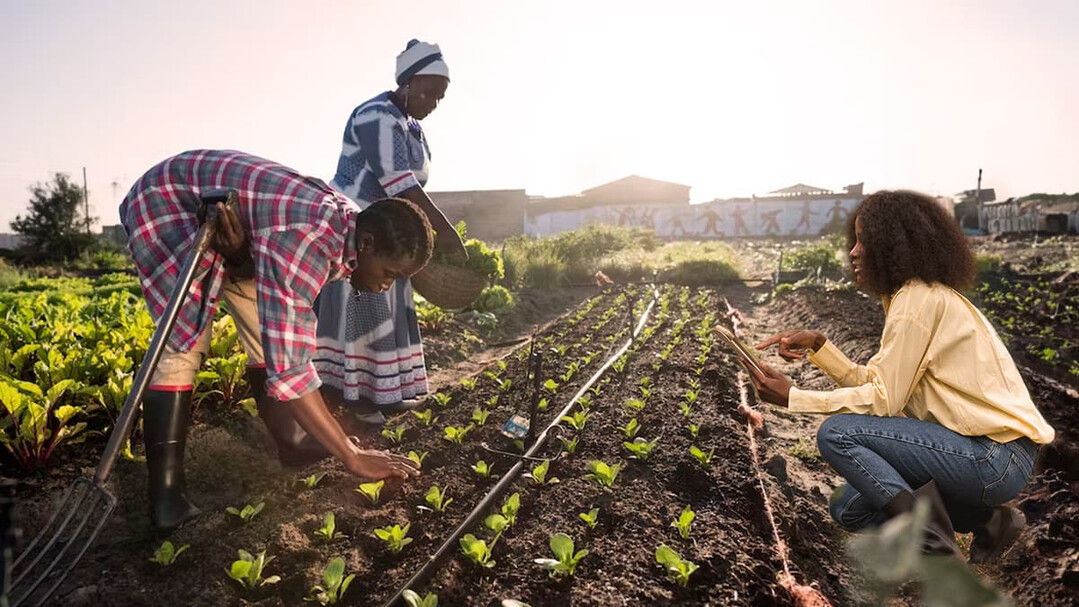
Kenya's agricultural sector, a cornerstone of its economy, faces unprecedented challenges from climate change and evolving market dynamics. However, the nation is poised to lead Africa's agricultural transformation through strategic adoption of disruptive technologies.
The Climate Challenge:
Climate change has drastically altered Kenya's agricultural landscape. Traditional crop varieties, once highly productive, are now vulnerable to unpredictable weather patterns, including prolonged droughts and extreme temperature fluctuations. Scientific projections indicate a potential 25% decline in maize yields by 2050 due to increased drought frequency. Moreover, rising temperatures have amplified pest and disease pressures, while extreme weather events disrupt food markets and infrastructure, leading to price volatility and reduced competitiveness.
Technological Innovation as the Solution:
Kenya's burgeoning agricultural technology (agritech) sector, home to nearly 25% of Africa's agritech startups, offers a critical advantage. The government's Agricultural Sector Transformation and Growth Strategy (ASTGS) and the Bottom-up Economic Transformation Agenda (BETA Plan) underscore the importance of technological innovation in driving agricultural growth.
Key Disruptive Technologies:
Biotechnology and Agricultural Biochemistry:Advanced breeding techniques, genetic engineering, and genome editing are vital for developing climate-resilient crop varieties and superior livestock breeds.
Synthetic biology offers potential for creating novel biopesticides and biofertilizers.
Integrated Digital Platforms:Comprehensive digital platforms connect farmers with essential services, including extension advice, soil fertility mapping, financial services, and real-time market information.
Digital farmer registration and insurance systems enhance investment security.
Internet of Things (IoT) and Precision Agriculture:IoT sensors monitor soil, water, crop, and livestock conditions, enabling data-driven decision-making.
Precision agriculture techniques, such as satellite farming and site-specific crop management, optimize resource utilization.
Drones, robotics, and GPS-guided systems improve farming precision and efficiency.
Renewable energy applications:Solar powered irrigation systems can increase crop production in arid areas.
Biogas production from agricultural waste can provide clean energy for farming operations.
Blockchain Technology:Blockchain can provide transparency and traceability within the agricultural supply chain, reducing fraud and improving market access for farmers.
Government and County Initiatives:
The Kenyan government has invested in ICT infrastructure and internet connectivity, creating a favorable environment for technological adoption. County governments, which play a crucial role in agricultural development, must prioritize digital literacy, skills training, and infrastructure development within their County Integrated Development Plans.
Necessary Steps for Success:
Targeted Investment: Prioritize funding for technologies that address specific challenges, such as climate resilience and market access.
Skills Development: Invest in digital literacy programs to bridge the rural-urban digital divide and empower farmers to utilize new technologies.
Regulatory Frameworks: Develop clear and balanced regulations for emerging technologies, ensuring safety and promoting innovation.
Infrastructure Development: Expand digital infrastructure in rural areas to ensure reliable connectivity.
Research Partnerships: Strengthen collaboration between research institutions, international partners, and private sector technology developers.
Financial Inclusion: Improve access to affordable financial services for farmers, enabling them to invest in new technologies.
Data Driven Policy: Create systems to collect and analyze agricultural data to provide information that drives effective policy.
Looking Ahead:
Kenya's agricultural sector is poised for a technological revolution. By embracing disruptive technologies and fostering collaboration between government, private sector, and research institutions, Kenya can secure its food future, drive economic growth, and emerge as a leader in African agricultural innovation. The future of Kenyan farming is digital, precise, resilient, and sustainable.
[Copyright (c) Global Economic Times. All Rights Reserved.]






























